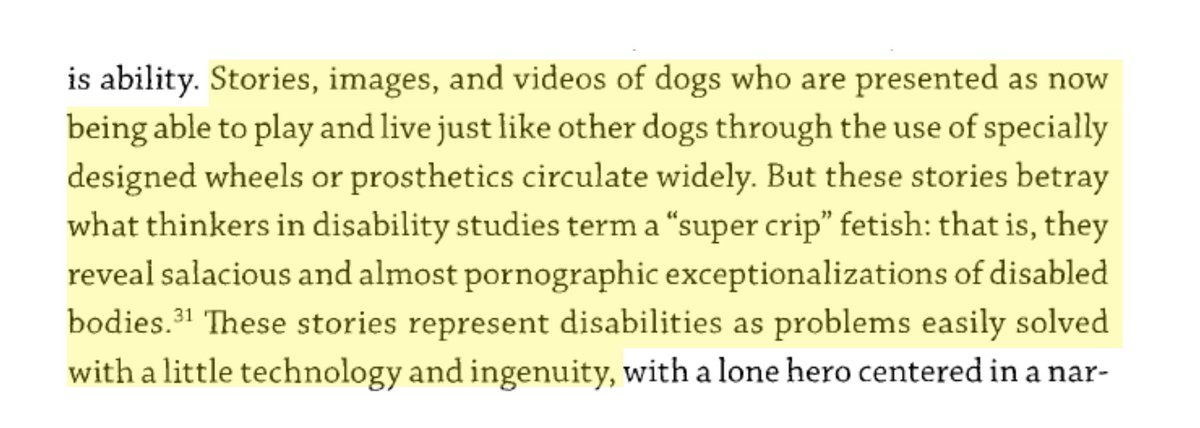1. Dymka, a cat suffering from frostbite that required amputation of all four of her legs, is walking again thanks to 3D printed titanium legs: bit.ly/3j0H97S. She’s one of many cats and dogs who were either born with a disability or suffered accidents.
2. There’s Vincent and Oscar in the UK and Perseus in Greece. Vito in Italy. And Naki’o in the United States. And then there are the thousands helped by wheelchairs. Technology is not just improving our lives, it is making life better for animals. 

3. Yet not everyone is celebrating. In the book “Bad Dog,” Harlan Weaver, a professor of gender studies at Kansas State University, objects to these stories, claiming they “reveal salacious and almost pornographic exceptionalizations of disabled bodies.” 

4. He denies that the disability these animals face can be “solved with a little technology and ingenuity,” despite all evidence to the contrary. 

5. He further claims that doing so “erases” the experiences of disabled people because “these interventions involve reshaping bodies to fit into hostile worlds, rather than pushing those worlds themselves to reshape and, at the least, do less violence to nonnormative bodies.” 

6. Of course, Weaver also defends backyard breeding and killing animals in pounds, as well as argues that Michael Vick and other dogfighters should not be prosecuted because they are “victims” of “white cis heteropatiarchy” that enables “toxic masculinities.” 

7. Weaver argues that placing dogs who survived dogfighting in caring, family homes is racist because the dogs “were effectively segregated from Blackness.” 

8. He argues that middle class homes are “rather terrible” and promote “settler-colonial and racist dynamics of land allocation.” 

9. And he argues that we need to allow the harpooning of whales and clubbing of seals because of “native cosmologies.” 

10. As such, I find it breathtaking that anyone would take his claims seriously. But people do and “Bad Dog” is part of a growing number of books and journal articles by professors calling for sacrificing animals on the altar of critical race theory: bit.ly/3B5G5Gy.
11. In the last few months, I have devoted a lot of my time writing about the emergence of critical race theory in the animal protection movement and the threat it poses to animals. Please join me on Substack: nathanwinograd.substack.com.
• • •
Missing some Tweet in this thread? You can try to
force a refresh











